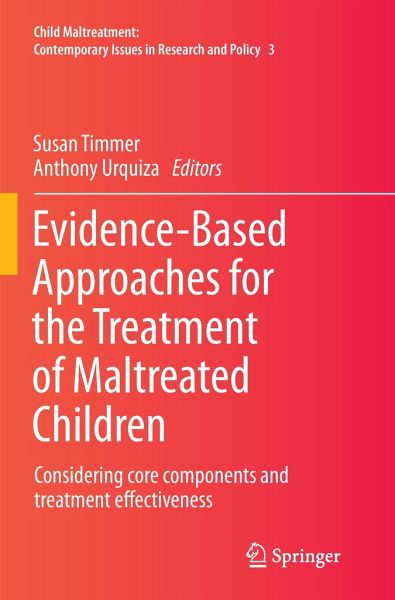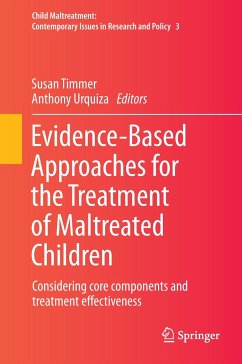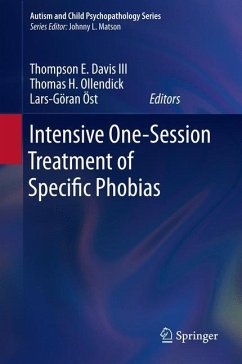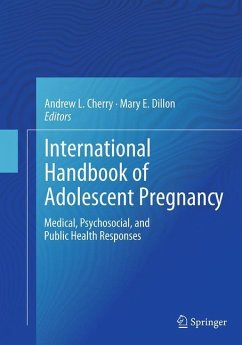
Evidence-Based Approaches for the Treatment of Maltreated Children
Considering core components and treatment effectiveness
Herausgegeben: Timmer, Susan; Urquiza, Anthony
Versandkostenfrei!
Versandfertig in 6-10 Tagen
136,99 €
inkl. MwSt.

PAYBACK Punkte
68 °P sammeln!
This volume provides an overview of the research describing the effects of child maltreatment on mental health, cognitive and social-emotional development. It offers descriptions of selected empirically based treatments (EBTs) written by scholars associated with its development, training, or research on its effectiveness. Each contributor presents the theoretical foundation of the EBT and evidence of its efficacy, describes the treatment process and illustrates this process with a case study of its use with a maltreated child, and discusses possible limitations. Following the chapters describi...
This volume provides an overview of the research describing the effects of child maltreatment on mental health, cognitive and social-emotional development. It offers descriptions of selected empirically based treatments (EBTs) written by scholars associated with its development, training, or research on its effectiveness. Each contributor presents the theoretical foundation of the EBT and evidence of its efficacy, describes the treatment process and illustrates this process with a case study of its use with a maltreated child, and discusses possible limitations. Following the chapters describing the interventions, the editors address key issues of the dissemination and implementation of these EBTs. They describe the strategies the selected interventions have used to ensure treatment fidelity in training and dissemination from the perspective of implementation science's core components of implementation. The challenges of implementing EBTs, and the difficulty of fitting protocol to the reality of clinical practice in community mental health settings are also discussed. This volume offers a central source of information for students and practitioners who are seeking effective interventions to address problems associated with child maltreatment.














